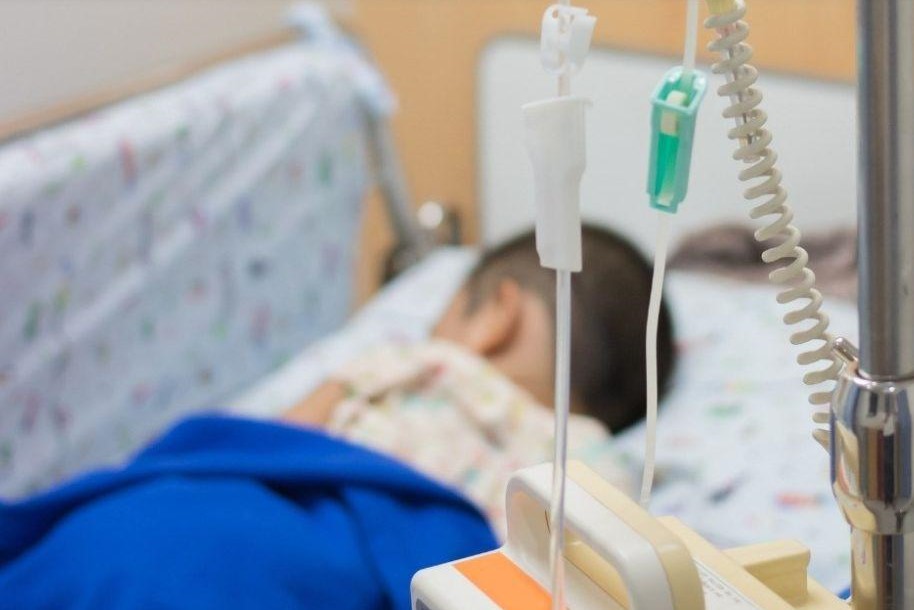
Autoimmune enteropathy: intestinal malabsorption and severe diarrhea in children
Autoimmune enteropathy is a rare intestinal disorder characterized by intractable watery diarrhea. It results in weight loss and in children is often associated with immunodeficiency
Autoimmune enteropathy (EA) is an extremely rare disease
It is characterized by severe, protracted diarrhea associated with weight loss and intestinal malabsorption secondary to the damage the immune system does to the mucosa.
It usually occurs in the first few months of life, and varies greatly from patient to patient, affecting the male sex more.
It is the most frequent diagnosis (up to 29%) in children with intractable diarrhea.
CHILD HEALTH: LEARN MORE ABOUT MEDICHILD BY VISITING THE BOOTH IN EMERGENCY EXPO
There are 5 subtypes: primary autoimmune enteropathy and syndromic enteropathy are those of pediatric interest
The causes of this disease are not totally clear.
It appears to be caused by dysregulation of intestinal immunity and, particularly in children, often occurs in association with immunodeficiency.
In these cases, circulating auto-antibodies against intestinal epithelial cells may be found, although their role has not yet been well established.
Symptoms are highly variable and can appear throughout childhood.
The most common symptoms are intractable watery diarrhea and malnutrition with stunting or major weight loss, which do not respond to dietary changes.
In many cases, bowel symptoms are associated with common variable immunodeficiency (CVID), or are part of more complex systemic syndromes, such as immunodisregulation-polyendocrinopathy-enteropathy X-linked syndrome (IPEX) and autoimmune polyendocrine syndrome type 1 (APECED).
In the latter conditions, in addition to bowel symptoms, other disorders such as recurrent infections, endocrine diseases, dermatitis, and other autoimmune diseases are present.
Diagnosis is made on the combination of clinical signs, symptoms, blood tests and histological changes
The diagnostic criteria proposed in 2007 by a group of specialists from the Mayo Clinic (USA) for the adult population can also be applied to children.
These criteria include:
- The presence of chronic diarrhea lasting longer than 6 weeks;
- Symptoms of malabsorption;
- Characteristic lesions of the mucosa of the small intestine observed under the microscope and exclusion of other causes of intestinal villous atrophy.
The presence of antibodies directed against certain cells of the intestine strengthens the diagnosis but is not considered an indispensable criterion.
There are currently no prevention strategies for this disease.
Treatment is complex and multidisciplinary and often requires total parenteral nutrition (NPT) and the use of systemic steroids.
Immunosuppressive drugs (Azathioprine, Methotrexate, Mycophenolate Mofetil, Cyclosporine, and Tacrolimus) are not always effective.
Recently, some biologic drugs (Infliximab, Rituximab and Abatacept) have been introduced with promising results.
Many children with IPEX undergo hematopoietic stem cell transplantation.
The prognosis usually depends on the severity of symptoms, the cause of the disease, and the response to treatment.
In most cases, the disease alternates between phases of improvement and worsening.
The mortality rate is high and may be an indication for intestinal transplantation.
Read Also
Emergency Live Even More…Live: Download The New Free App Of Your Newspaper For IOS And Android
When Is A Colonoscopy With Biopsy Necessary?
What Is Gastro-Oesophageal Reflux And How To Treat It
Vomiting Blood: Haemorrhaging Of The Upper Gastrointestinal Tract
Pinworms Infestation: How To Treat A Paediatric Patient With Enterobiasis (Oxyuriasis)
Intestinal Infections: How Is Dientamoeba Fragilis Infection Contracted?
Gastrointestinal Disorders Caused By NSAIDs: What They Are, What Problems They Cause
Intestinal Virus: What To Eat And How To Treat Gastroenteritis
Gastrointestinal Bleeding: What It Is, How It Manifests Itself, How To Intervene
Gastroenterology: What Is The Difference Between Gastritis And GERD?
Colonoscopy: What It Is, When To Do It, Preparation And Risks
Colon Wash: What It Is, What It Is For And When It Needs To Be Done
Rectosigmoidoscopy And Colonoscopy: What They Are And When They Are Performed
Ulcerative Colitis: What Are The Typical Symptoms Of The Intestinal Disease?
Wales’ Bowel Surgery Death Rate ‘Higher Than Expected’
Irritable Bowel Syndrome (IBS): A Benign Condition To Keep Under Control
Intestinal Infections: How Is Dientamoeba Fragilis Infection Contracted?
Study Finds Link Between Colon Cancer And Antibiotic Use
Colonoscopy: More Effective And Sustainable With Artificial Intelligence
Colorectal Resection: In Which Cases The Removal Of A Colon Tract Is Necessary
Gastroscopy: What The Examination Is For And How It Is Performed
Gastro-Oesophageal Reflux: Symptoms, Diagnosis And Treatment
Endoscopic Polypectomy: What It Is, When It Is Performed
Straight Leg Raise: The New Manoeuvre To Diagnose Gastro-Oesophageal Reflux Disease
Gastroenterology: Endoscopic Treatment For Gastro-Oesophageal Reflux
Oesophagitis: Symptoms, Diagnosis And Treatment
Gastro-Oesophageal Reflux: Causes And Remedies
Gastroscopy: What It Is And What It Is For
Colonic Diverticular Disease: Diagnosis And Treatment Of Colonic Diverticulosis
Gastro-Oesophageal Reflux Disease (GERD): Symptoms, Diagnosis And Treatment
Diverticula: What Are The Symptoms Of Diverticulitis And How To Treat It
Irritable Bowel Syndrome (IBS): A Benign Condition To Keep Under Control
Gastroesophageal Reflux: Causes, Symptoms, Tests For Diagnosis And Treatment
Non-Hodgkin’s Lymphoma: Symptoms, Diagnosis And Treatment Of A Heterogeneous Group Of Tumours
Helicobacter Pylori: How To Recognise And Treat It
A Baby’s Gut Bacteria May Predict Future Obesity
Sant’Orsola In Bologna (Italy) Opens A New Medical Frontier With Microbiota Transplantation
Microbiota, The Role Of The ‘Gate’ That Protects The Brain From Intestinal Inflammation Discovered
What Are The Differences Between Diverticulitis And Diverticulosis?


